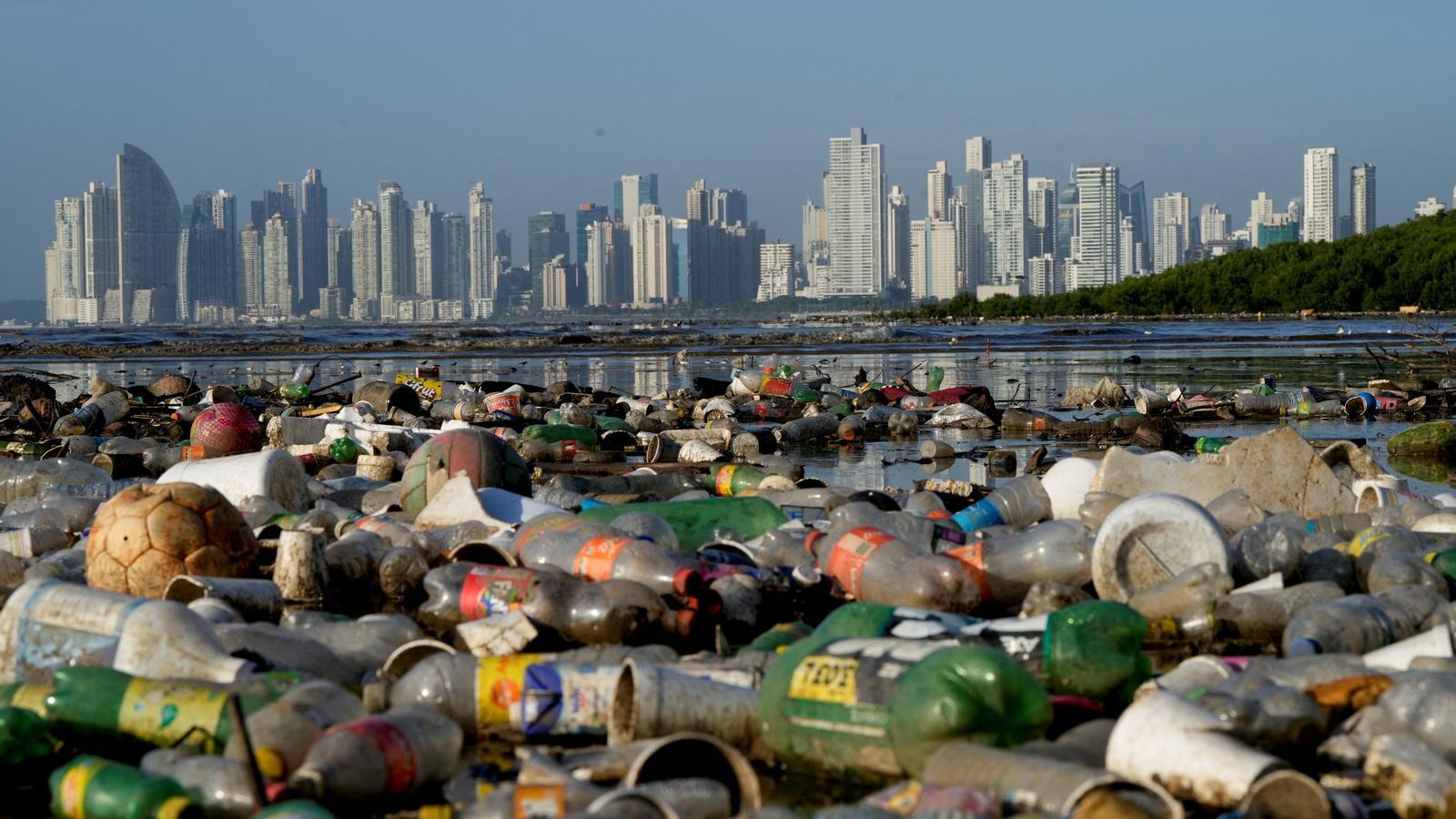All the plastic waste on the planet would fill 200 million trucks.
A new study from The Lancet calls on governments meeting in Geneva to reduce plastic production.


BarcelonaUp to 8 billion tons of plastic waste pollute the planet, according to an estimate from a new scientific study published Monday in The LancetThis stratospheric figure is equivalent to 200 million large trucks (about 40 tons each), which are necessary to collect all the plastic waste accumulating in every corner of the planet, from the mountains to the bottom of the ocean. However, it would be an impossible feat because much of this waste They are in the form of microplastics and nanoplastics, very small particles that pollute the environment and that have reached our body through the food chain. The study of The Lancet, in fact, denounces that "plastics cause illness and death from childhood to old age." The study is published coinciding with the start of the summit that will bring together all UN governments in Geneva starting tomorrow to try to finally approve the Global Plastics Treaty. This binding agreement has been blocked in previous summits by plastic-producing countries (derived from petroleum), which refuse to include measures that affect production and demand that the treaty be limited to talking about waste management.
Nearly 100 governments support the inclusion in the future treaty of "a global objective to reduce the production and consumption of primary plastic polymers to sustainable levels," as they reaffirmed in a declaration signed during the Ocean Summit in Nice this June. These governments include all those of the European Union, Canada, the United Kingdom, New Zealand and others, but, as expected, neither the United States nor China, Russia or India, nor even Japan, have joined.
"The harm of plastics to human health and planetary are worsening, driven mainly by the constant annual increase in the production of new plastics," warns the study. In fact, the newspaper The Guardian revealed a few days ago the "total infiltration" of the plastics industry in the treaty negotiations and claimed that a "petrochemical bloc," led by Saudi Arabia, had managed to delay the talks. According to the British newspaper's investigation, scientists participating in this dialogue were also harassed and intimidated by industry representatives.
"Global plastics production has increased 250-fold: from less than 2 million tons in 1950 to 475 million tons in 2022, with the fastest increases seen in the production of single-use plastics. Consequently, the generation of plastic waste is expected to almost triple by 2060," denounces the study published this Monday, which calls for the new treaty to "cover the entire plastic life cycle."
Eliminate hazardous chemicals
In addition to this call for production limits, another key point in the negotiations, which begin this Tuesday in Geneva, is the attempt to include in the treaty the obligation to gradually eliminate a specific list of the most problematic plastic products and the hazardous chemicals they contain. The treaty is also expected to establish an obligation to improve the design of plastic products to make them more easily recyclable or reusable. Currently, less than 10% of plastic waste is recycled worldwide. Another hot topic of discussion is, as always, financing, with calls for a mechanism based on the "polluter pays" principle for plastic producers to help developing countries.
This is the second time that UN governments have met for "final negotiations" on the Global Plastics Treaty. Last December, they met in Busan, South Korea, with the goal of approving it, but negotiations stalled due to pressure from the fossil fuel industry, and the ball was kicked to the curb. This time, the final treaty should be held in Geneva, but the possibility of the same thing happening again is also possible. The current draft of the treaty is 22 pages long, with more than 370 brackets (sections on which there is no agreement).
The link between this negotiation and the fight against the climate crisis is obvious. 99% of plastic is produced from fossil fuels, which are responsible for global warming. The International Energy Agency estimates, in fact, that one-third of the growth in oil demand until 2030 will come from plastic production. Therefore, the fossil fuel lobby will be very present in Geneva these days, as it has been for some time at all UN climate summits.
